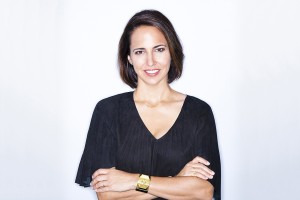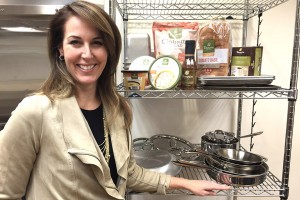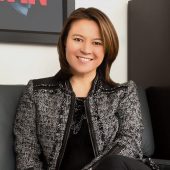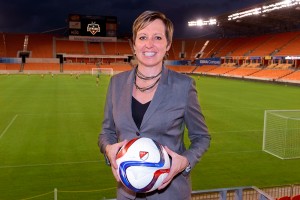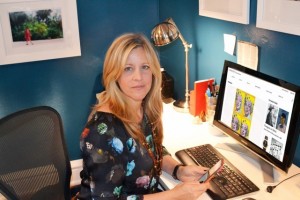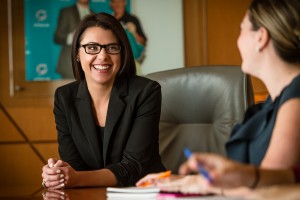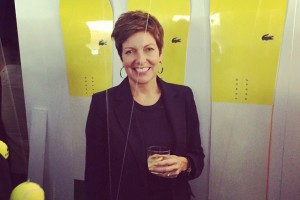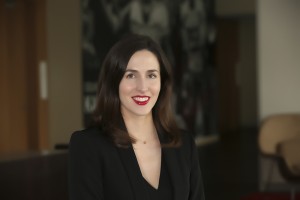Linda Rutherford, VP and Chief Communications Officer for Southwest Airlines, Texas Tech Graduate, and Busy Volunteer
Linda Rutherford is the VP and Chief Communications Officer for Southwest Airlines, where she oversees functions from public relations to charitable giving for what is – in terms of domestic enplanements — the nation’s largest airline. Linda’s roots as a reporter and her passion for great storytelling are visible in each layer of her teams’ efforts, from video production and graphic design, to internal and external communications, and employee engagement and travel administration. Her people will tell you that she’s a fierce advocate, a fun leader, and someone who looks for every opportunity to say yes to a great idea.
Linda is passionate about giving back to causes close to her heart, and serves on the Board of Directors for the Friends of Texas Public Schools, Texas Tech University’s Alumni Association National Board, and the Metrocrest Chamber of Commerce. Linda and her husband Mike have two children, and you can often find them all traveling to their favorite destinations (on Southwest, of course!), or enjoying dinner out together. Read on to find out how the end of her dream job as a reporter turned into a phone call that would change her life.
Can you tell the readers a little bit about yourself?
I am the quintessential working mom with two teenage kids, and consider myself to be the “accidental executive.” I’ve always had a passion for writing, and grew up wanting to be a newspaper editor like (actor) Ed Asner in the TV show Lou Grant. After graduating from college, I went on to work for a series of magazines and newspapers, including a stint as a reporter for the Dallas Times Herald, which I considered a dream job. After that newspaper folded, an opportunity presented itself to join Southwest Airlines as a PR Coordinator, and the rest is history.
What does a day in your shoes typically look like?
If I’m working in the office at our Dallas headquarters, you’ll likely find me in a series of meetings about various projects or leadership initiatives. I frequently emcee company events, and give speeches as a SWA Ambassador in the communities we serve. I volunteer on the board of the Metrocrest Chamber of Commerce, where we work to provide resources and support to businesses in our local area.
When I’m not working, you’ll find me cheering on my kids at one of their events, or enjoying a glass of wine with my husband.
What keeps you energized and motivated at work?
I’m an extrovert (my Myers Briggs type is ENTJ), and I get my energy from other people. I love the people I get to work with every day, and am motivated by their personalities. We laugh, cry, cuss, and discuss, and we’re passionate about the work we get to do together.
What is your favorite part about your job?
It’s probably my reporter roots, but my favorite part of my job is finding and getting to tell the stories about Southwest Airlines. We get to work in a business that connects customers to people and places that matter. Every day, we’ll have an employee who goes out of his/her way to help a co-worker or a customer in need, or we’ll hear a great story of a customer who uses travel on Southwest to fulfill his/her dreams. It’s a privilege to work with a team of people who are passionate about sharing these stories with our employees and the world.
Do you have a “Power Outfit” that you wear for a big meeting or important work event?
My son teases me and calls me the “Queen of the Pantsuit”! I’m fortunate to work in a fun environment where our dress is casual, and I do enjoy adding a pop of bold color or great statement necklace to an outfit.
How many times have you changed your career direction?
After I received my BA in Journalism, I worked as a reporter for a series of magazines and newspapers. I loved my time at the Dallas Times Herald, and considered my position as a reporter to be a dream job for my journalism career.
But when the Herald folded, I no longer had the dream job of staff reporter. Fortunately, I had contacts at Southwest Airlines from my work on the airline beat, and they let me know about an open PR coordinator position. After learning that the job involved writing press releases and working as a contact for the media, I accepted. Twenty-three years later, I’m still here.
Public relations doesn’t look anything like it did twenty-three years ago. Education and evolution are vital in any industry, and I wouldn’t have had success in my career without adopting the attitude of a lifelong learner, which is key for success in all fields.
What has been your biggest obstacle in your career and how did you overcome it?
My biggest blind spot occurs when I tend to take people at face value during meetings and presentations. Sometimes I don’t see the informal power structure and politics of a situation until later, and I’ve had to learn that everyone isn’t built to move forward with an idea as soon as it is presented. This is an ongoing “growth opportunity” for me!
What are your most steadfast ‘don’ts’ rules regarding work and the workplace, and what are your most cherished ‘do’s’?
Do
- Enjoy your work! If you’re not in a field or position that makes you happy, it’s time to make a career change.
- Encourage relationships at work. We spend so much time in the office, and it’s a gift to appreciate the people you get to work with.
- Commit to lifelong learning. You’re doing yourself a disservice if you think your education stops when you graduate. Pursue an advanced degree, a certification, or whatever skills you can to stay in the learning zone.
Don’t
- Gossip. Talking negatively about others creates a cancer in an organization, and leads to people fighting an invisible monster.
- Make your career goals someone else’s problem. If you have a boss who isn’t retiring anytime soon, or if your leader doesn’t think you’re ready for a promotion, your options don’t end there. It’s up to you to make your own opportunities, don’t wait for someone else to do that for you.
- Let yourself be overworked. If you burn yourself out, you aren’t performing at your peak and no one wins. I’ve found it helpful to imagine work/life balance over a span of time, so that if I work late a few nights a week, I plan my downtime accordingly to refresh.
What are the most important qualities of a good leader?
Ideally, a leader is a good listener, picking up on things that are both said and not said. He or she is agile, able to adapt as the world changes, and also has an authentic interest in knowing his or her people. Remembering things like which of your employees shares your birthday, or when a co-worker has a big trip planned, goes a long way.
How have mentors impacted your personal and professional development?
They have encouraged me to never see an end to the possibilities, and taught me that if there is a ceiling, it’s because you put it there. Never act or lead with limitations, and always challenge the status quo.
My mentors have also taught me to have a bias for action. A fabulous idea won’t come to fruition if you are too afraid to act on it!
What are three questions you like to ask during an interview to know if the candidate is the right fit?
- “Tell me about a time in your life when you’ve used humor to get through a difficult situation.” Ideally, the candidate will respond in a way that shows they can be self-deprecating and vulnerable.
- “Tell me what personal or professional accomplishment you are most proud of?” Asking this helps me to better understand what makes a candidate tick.
- “Tell me about your most embarrassing moment, or a time when you’ve made a mistake?” This shows me if a candidate has a sense of humor, and doesn’t take themselves too seriously.
What advantages do you see as a woman in the workplace?
Women bring a level of feminine thinking to the office, in people management and decision-making. Our perspective on head and heart balance is helpful in getting to the root of issues, and for motivating our employees.
Women also bring a people-centered focus to the conversation in the workplace, which provides a needed counterpoint to our male counterparts.
What advice would you give to women starting their careers?
- Build a “kitchen cabinet.” It’s essential to build relationships with women whose counsel you trust.
- Seek and find a professional mentor. This person will help you challenge your thinking and put experiences into perspective without being directly linked to evaluating your performance.
- Be patient with your career growth. When you are first starting out, take every opportunity to learn, and be self-aware of what you don’t know. Don’t miss out on a chance to grow your skills and gain valuable experience where you are because you are too focused on getting a promotion.
What book would you recommend for women just starting their career?
Cathie Black’s book Basic Black is excellent. She has a very direct communication style, and talks about what it took for her to get noticed. She also has great advice on achieving work/life balance, and I love her story about how, as President of Hearst Magazines, she led the charge to win the business of Oprah’s O Magazine.
Sylvia Ann Hewlett’s book, Executive Presence is another one of my favorites. She has a fascinating section on body language in meetings, and the difference between the way men and women present themselves. I’ve found her observations to be spot-on.
What is your favorite quote you try and live by?
I’ll give you two. George Bernard Shaw once said that “The single biggest problem with communication is the illusion that it’s taken place.” I love this quote, because I find it to be true on many levels.
My other favorite quote comes from Dallas philanthropist Ruth Altshuler. She is an inspiring woman on many levels, and at eighty-eight years old, recently led the efforts for the city of Dallas to remember the fiftieth anniversary of the Kennedy assassination. Ruth describes herself as “often wrong, but seldom in doubt,” which I love. Decisive, firm, and confident!
16TAGS: SharpSavvySignificant
 Effective Communication
Effective Communication Women Making History
Women Making History Grants & Funding Sources
Grants & Funding Sources Interview Prep
Interview Prep Impactful Leadership
Impactful Leadership Dressing for Work
Dressing for Work Dressing for Your Style
Dressing for Your Style Interview Style Tips
Interview Style Tips Women's Stocking Stuffers
Women's Stocking Stuffers Gift the Busy Traveler
Gift the Busy Traveler Airport Layover Activities
Airport Layover Activities Traveling & Eating Healthy
Traveling & Eating Healthy Travel Like a Boss Lady
Travel Like a Boss Lady The Dual California Life
The Dual California Life Gifts for Thanksgiving
Gifts for Thanksgiving Summer Reading List
Summer Reading List Top Leisurely Reads
Top Leisurely Reads New Year, New Books
New Year, New Books Life Lessons from a Sitcom
Life Lessons from a Sitcom Oprah, Amy or Amal?
Oprah, Amy or Amal?






